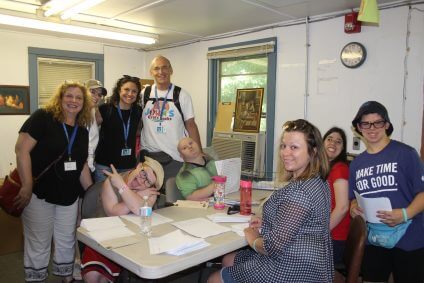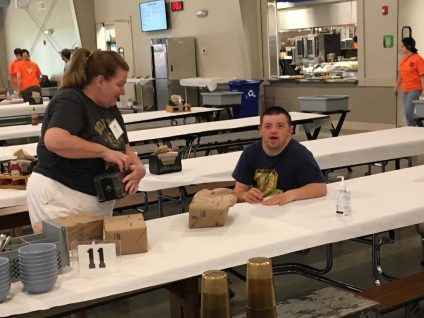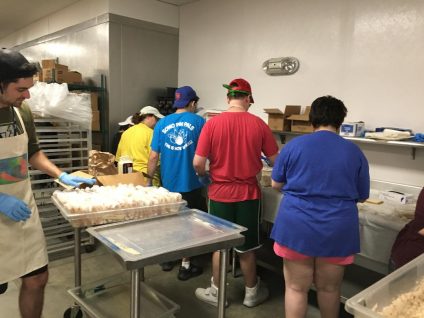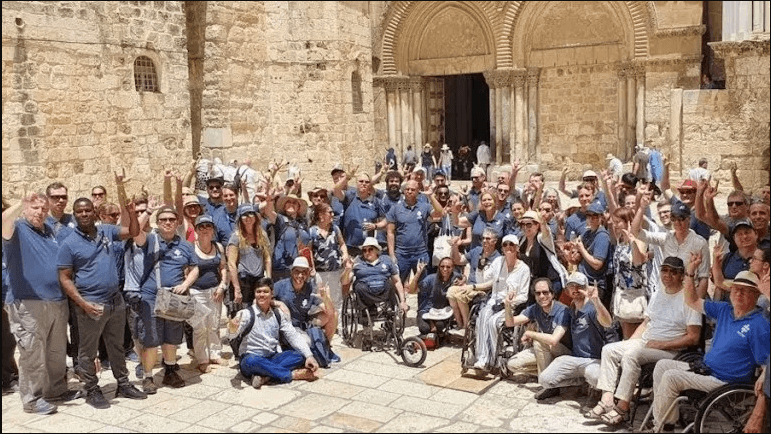Original Article Published on The New York Jewish Week
Timed to coincide with February’s JDAIM, the international group will trek Africa’s tallest mountain using Israeli designed special assistance technology.
This year, I will not be spending Jewish Disability Awareness, Acceptance & Inclusion Month (JDAIM) with my colleagues and friends at 10th annual Jewish Disability Advocacy Day on Capitol Hill (February 4th). And I won’t be teaching about disability inclusion at synagogues or college campuses across the country. While I will “miss” the more traditional marking of JDAIM, I will have the once in a lifetime opportunity to experience Jewish disabilities inclusion in a very unconventional setting—Mount Kilimanjaro in Tanzania!
I will attempt to trek up the 19,341 foot mountain, through five ecosystems and vast game preserves, with 27 hikers from Texas, Montana, New York, and New Jersey, as well as with participants from Israel. The delegation includes a twice paralyzed Utah athlete and her husband, a Peruvian born cyclist and skier who is also an amputee with paraplegia, an Israeli army veteran who is paralyzed, a 9/11 first responder who experienced PTSD, a local Tanzanian man with paraplegia and others who believe in the mission of FAISR—Friends of Access Israel.
FAISR, started only several months ago, and Access Israel, founded just over 20 years ago in Israel, is an organization which uses education, advocacy and technology to promote accessibility, inclusion, respect, removal of actual and perceived barriers, and an equitable environment for people of all abilities around the world.
The trekkers will ascend the Marangu route, also known as the Coca Cola trail, to reach the peak. In accordance with best practices and Tanzanian law which assures the safety of hikers with and without disabilities, the delegation will be accompanied by three cooks, 11 guides, and 70 porters. Daily mileage will range from 3.1 miles on the acclimation days, to a grueling 13.7 miles during the final ascent, setting out just before midnight Saturday night with the goal of reaching the summit at sunrise.
The group should be well-rested for the final, all-night Saturday night ascent. We will be spending a relaxing Shabbat at 15,420 feet and will enjoy vegan kosher Shabbat meals, prayer services (including Shabbat morning where we will read the Song of the Sea from a torah scroll (yes, we are carrying a kosher torah scroll up the mountain!). And I will have the privilege of teaching a favorite JDAIM Talmud text on inclusion!
The climb up Kilimanjaro is believed to be the largest delegation of hikers with disabilities. Starla Hilliard-Barnes, who was selected as Ms. Wheelchair Montana in 2014, became the first wheelchair-user to compete in the Mrs. Montana pageant in 2016. She is founder of Moving Forward Adaptive Sports and the charity, Gifts of Love, and will be accompanied by husband, Shannon Barnes. Hillard-Barnes will use a specialized wheelchair, known as a Paratrek, as she ascends Kilimanjaro. “I’ve dreamed since I was a little girl to go climb Mount Kilimanjaro,” reports Starla. She has been hearing about Africa and Kilimanjaro her whole life from her grandparents, who were missionaries there.
In a phone interview three weeks before the trip, Hillard-Barnes concedes that she has “never sat on a Paratrek” and “never even touched one!” The good natured Hillard-Barnes playfully reports, “It will be interesting.” The experienced hand-cyclist, who has a great deal of hiking and camping experience feels her biggest challenge will be “giving up my independence and letting someone else be in control.” Unlike with hand cycling, which she does on her own, she will need to rely on others when she uses the Paratrek.
Omer Zur, founder and CEO of Paratrek, the Israeli company that specializes in finding solutions for people with disabilities to enable them to enjoy nature with groups of people with and without disabilities, is very aware of the need to find the right balance between assuring the independence of the trekker, and offering assistance as needed. He designed the first Paratrek to enable his fiercely independent father who was paralyzed 35 years ago during the Yom Kippur War to climb mountains and go camping. “My parents wanted us to be the best version of ourselves and to go out in nature and be comfortable.” On a three-year post-army trek, Zur realized that his father never had this opportunity. He set out to design an apparatus for his dad. His father was not pleased with the initial concept—a stretcher carried by Omer’s friends. Zur then created the Paratrek, and he and his father set out on a 33-day journey.
The Paratrek has a rickshaw-style bar in the front that fits around another hiker’s waist and handlebars in the back that a second person can use to stabilize or push the trekker with paraplegia, if needed. Zur will be traveling from Israel to Tanzania with five Paratreks, extra shock absorbers, wheels and other supplies. On the trip, Zur will make sure the Paratreks are in proper working order, and he will be there to help assure the comfort and safety of each participant.
Hillard-Barnes initially learned of the Kilimanjaro hike from Facebook friend and fellow paraplegic, Marcela Maranon. Peruvian-born Maranon, who lives in Dallas, Texas, lost her left leg and became paralyzed from the waist down in a car crash at age 19. Following what she described as a “very dark period” of several years, she entered rehab in Baltimore, Maryland. Her experiences with ReWalk, an Israeli-made, FDA approved wearable robotic exoskeleton that provides powered hip and knee motion to enable individuals with spinal cord injury (SCI) to stand upright, walk, turn, and climb and descend stairs attracted a great deal of attention in the United States, Israel and around the world. She went on to be the public face of Rewalk. She playfully notes, “I am the girl in the brochures!” She has also fallen in love with Israel, reporting, “When I went to Israel, I felt Israel was my second home—it is so beautiful, the food is fantastic, they have the best beaches…” Maranon and Hillard-Barnes will get to meet in person in Tanzania on February 2nd as they get acquainted with their fellow climbers and the Paratrek.
James Lassner, executive director of Friends of Access Israel, is inspired by the unique stories of each of the participants. “With our collective physical strengths, mental toughness, and diverse abilities, we are all looking forward to joining together to conquer Kilimanjaro as a team. Our goal is to unite as one, laugh together, cry together, trek together, and celebrate together at 19,341 feet.”
When the delegation gathers at JFK airport in New York on February 2nd, they will be one step closer to reaching the summit of Kilimanjaro, and spreading the word for inclusion.
Please follow the expedition’s updates on Facebook and Instagram.









